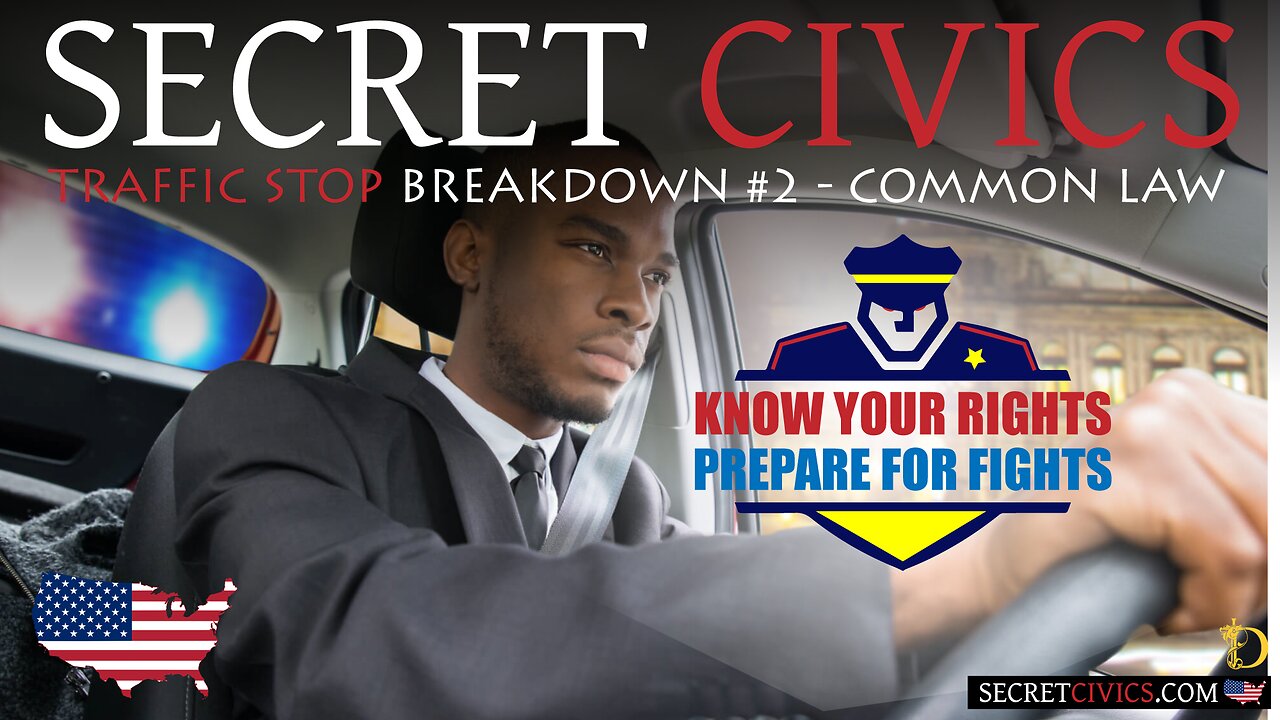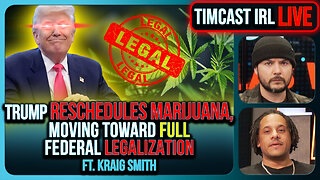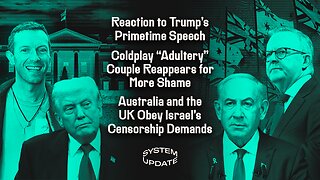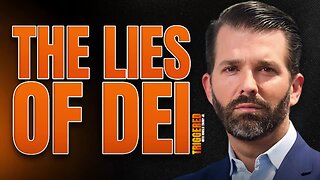Premium Only Content

SC - Traffic Stop Breakdown #2 (Longer Version)
A tacit agreement refers to an understanding or arrangement that is inferred from actions or circumstances rather than expressed explicitly in words. In the context of a traffic stop and interactions with law enforcement, it's crucial to be aware of how your words and behavior might unintentionally create such agreements.
Understanding the Context
When you're pulled over, knowing your rights and being careful with your language can help you avoid inadvertently entering into a tacit agreement that could be used against you. Here are some key points to keep in mind:
Right to Remain Silent: You have the right not to incriminate yourself. You can exercise this right by politely informing the officer that you choose to remain silent.
Non-Verbal Agreements: Actions and body language can sometimes be construed as consent or agreement. Be mindful of how you present yourself and follow legal guidelines without overstepping your rights.
Consent to Searches: Be cautious when agreeing to any searches. Verbally and clearly state that you do not consent to a search. This is important as consent to searches is one common area where tacit agreements happen.
Avoiding Incriminating Terminology
Here's a breakdown of phrases and actions to avoid, and what you can do instead:
Things to Avoid:
Admitting Fault: Avoid saying things like "I didn't realize I was speeding."
Implied Consent: Don't say "Sure, you can take a look" when asked for a search.
Incriminating Responses: Phrases like "I only had one drink" are better left unsaid.
Preferred Responses:
Exercise Your Rights: "Officer, I choose to remain silent."
Refuse Searches Politely: "I do not consent to a search."
Request Legal Representation: "I would like to speak to an attorney."
Key Legal Points to Remember:
Ask If You're Free to Leave: "Officer, am I being detained or am I free to go?" This can help clarify if you are under any obligation to stay.
Record the Encounter: If legally permissible in your jurisdiction, recording the interaction can provide an accurate record of what transpired.
Practical Example:
Incorrect Approach:
Officer: "Do you know why I pulled you over?"
You: "I guess I was speeding a little."
Correct Approach:
Officer: "Do you know why I pulled you over?"
You: "No, officer."
By choosing the correct approach, you avoid self-incrimination and the possibility of entering into a tacit agreement.
Broader Implications of Tacit Agreements
In some discussions about law enforcement and corporate governance, there's an argument that individuals may unwittingly agree to certain terms and conditions by their actions, without explicit consent. This is often cited in the context of traffic stops, where corporatization concepts are raised.
By being informed and mindful of your rights and how you communicate, you can better navigate interactions and protect yourself from unintentional agreements.
-
 LIVE
LIVE
Turning Point USA
7 hours agoLIVE NOW - AMFEST IS BACK - ERIKA KIRK, MICHAEL KNOWLES, TUCKER CARLSON, BEN SHAPIRO & RUSSELL BRAND
24,483 watching -
 LIVE
LIVE
Inverted World Live
4 hours agoAttack of the Radioactive Fog in L.A. | Ep. 156
218 watching -
 LIVE
LIVE
TimcastIRL
2 hours agoMarijuana LEGALIZATION IS COMING, Trump Orders Weed To Schedule 3 In HUGE Move | Timcast IRL
8,486 watching -
 LIVE
LIVE
megimu32
1 hour agoON THE SUBJECT: CHRISTMAS CORE MEMORIES
198 watching -
 UPCOMING
UPCOMING
DLDAfterDark
17 minutes agoThe Very Merry HotDog Waffle Christmas Stream! Gun Talk - God, Guns, and Gear
-
 1:19:51
1:19:51
Tundra Tactical
11 hours ago $1.94 earnedThursday Night Gun Fun!!! The Worlds Okayest Gun Show
7.17K -
 55:11
55:11
Sarah Westall
22 hours agoHumanity Unchained: The Awakening of the Divine Feminine & Masculine w/ Dr. Brianna Ladapo
5.25K2 -
 1:42:41
1:42:41
Glenn Greenwald
6 hours agoReaction to Trump's Primetime Speech; Coldplay "Adultery" Couple Reappears for More Shame; Australia and the UK Obey Israel's Censorship Demands | SYSTEM UPDATE #560
95.1K48 -
 2:46:41
2:46:41
Barry Cunningham
4 hours agoBREAKING NEWS: President Trump Signs The National Defense Authorization Act | More News!
17.4K15 -
 43:10
43:10
Donald Trump Jr.
5 hours agoThe Days of Destructive DEI are Over, Plus Full News Coverage! | TRIGGERED Ep.301
89.8K60